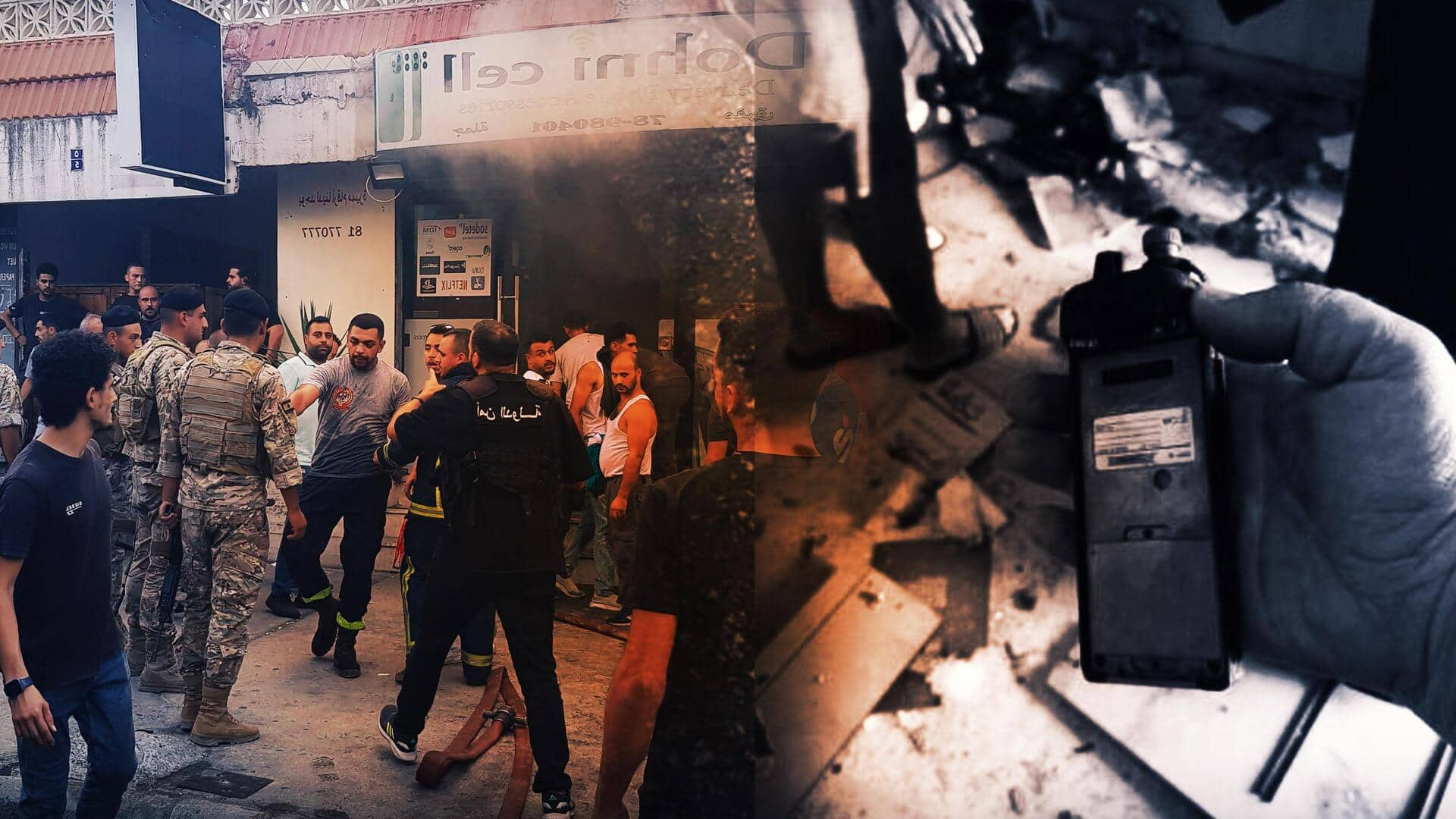
Explained: Theories on how Israel may have triggered Hezbollah blasts
What's the story
A series of explosions involving pagers and walkie-talkies used by Hezbollah members across Lebanon has led to at least 32 fatalities and thousands of injuries.
The blasts, which took place on Tuesday and Wednesday, has sparked several theories about potential sabotage methods.
While investigations are still underway to determine the exact cause, three main theories have emerged.
Device tampering
Theory 1: Explosives planted in devices
The first theory suggests that explosives were planted in the devices.
Lebanese security sources and Reuters reports indicate that a batch of 5,000 pagers ordered by Hezbollah from Taiwan-based manufacturer Gold Apollo had been compromised.
It is suspected that Mossad, the Israeli spy intelligence agency, embedded small explosive devices within these pagers.
These explosives, reportedly as small as 3 gram, were hidden so effectively that they went undetected by Hezbollah for months.
Supply interference
Theory 2: Supply chain compromised
The second theory proposes that the supply chain was compromised. Security experts suggest that Israeli intelligence may have gained access to the devices long before they reached Hezbollah.
The pagers, identified as Gold Apollo AR-924 models, were later found to be manufactured by BAC Consulting in Hungary.
This discovery raises the possibility of sabotage during manufacturing or distribution stages, providing Israel an opportunity to install explosive materials without detection.
Remote detonation
Theory 3: Remote activation via message
The third theory centers on the possibility of remote detonation using an electronic signal or radio frequency.
Mark Montgomery, a retired admiral and executive director of the Cyberspace Solarium Commission, suggested that the explosions may have been triggered by a radio frequency or electronic signal.
A report from the New York Times supports this theory, stating that the pagers simultaneously received what appeared to be an internal communication from Hezbollah leadership which activated the hidden explosives upon opening.
Accusations and aftermath
Hezbollah blames Israel, vows retaliation
Hezbollah has blamed Israel for the attack and vowed retaliation.
The timing of the explosions, following Israel's announcement of extended military operations along the Lebanon border, has fueled speculation that this was a deliberate move by Mossad.
However, Israel has not officially commented on the matter.
The severity of injuries from these blasts has been described as "out of this world," with reports detailing amputations and severe shrapnel wounds.